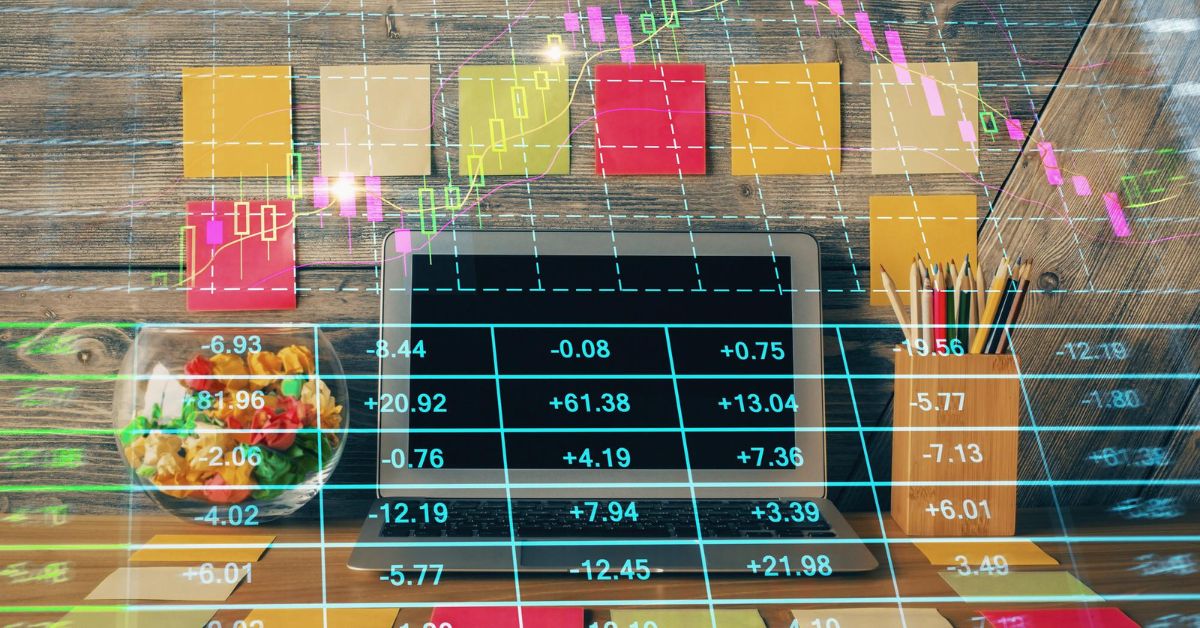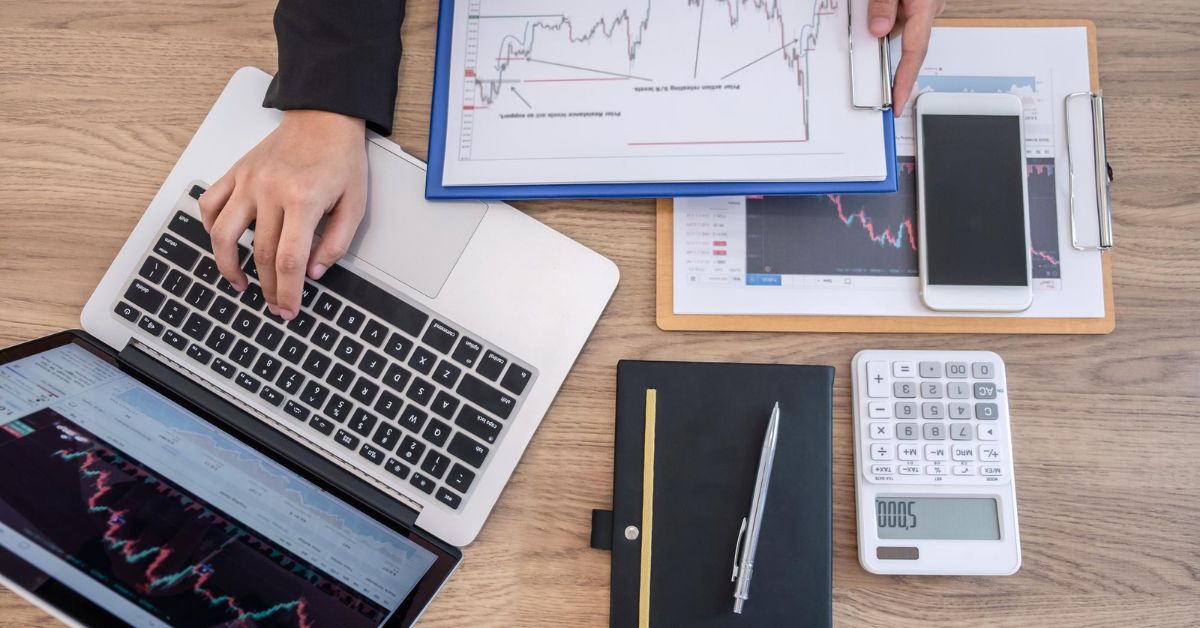Trading in financial markets can be highly rewarding, but it also comes with significant challenges. One of the most critical factors that determine success or failure is discipline. Without discipline, even the most advanced strategies and tools can fail to deliver the desired results. In this blog post, we will explore the importance of discipline in trading. We will look at key aspects such as adherence to plans, emotional control, and risk management. Understanding these elements is crucial for anyone looking to succeed in trading.
A reliable platform like Prime XBT offers essential resources and tools to help traders achieve their goals. Prime XBT is a trusted crypto trading platform that provides everything needed to stay focused and make informed decisions. So, join PrimeXBT today! Use promo code PRIMEOTT to receive a +7% bonus on your deposit.
What is Trading Discipline?

Trading discipline means sticking to a set of trading rules and strategies rather than acting on impulses or emotions. A disciplined trader strictly follows a trading plan, which includes well-defined entry and exit points, risk limits, and position sizes. It gives traders a clear direction during market fluctuations so they don’t let their emotions take over during market fluctuations.
The Difference Between Disciplined and Impulsive Trading
Disciplined trading is strategic and consistent, where decisions align with a pre-established plan. In contrast, impulsive trading often stems from emotional reactions to market trends, like jumping on a trend due to fear of missing out (FOMO).
Discipline allows traders to avoid overtrading or holding onto losing positions out of hope, which is common in impulsive trading. Disciplined traders aim for long-term growth instead of quick, unsustainable profits.
Importance of Discipline in Trading
In trading, discipline is crucial for managing risks and ensuring steady growth. Risk management is about limiting losses and protecting capital by setting stop-loss orders and diversifying investments.
Over time, these practices help traders withstand market volatility without significant setbacks. It’s easier to build a stable and profitable trading strategy when you focus on calculated trades instead of emotional responses.
Building a Disciplined Mindset
Developing trading discipline involves setting clear goals, maintaining a trading journal, and learning from each trade. Tracking progress and analyzing mistakes help traders adjust their strategies over time.
It’s also important to control your emotions; managing greed and fear will make sure your decisions are based on data, not stress. This approach not only supports consistent execution but also promotes personal growth and resilience in the unpredictable world of trading.
Overall, trading discipline is essential for sustainable success, providing a structured approach to navigate the often chaotic market environment.
The Psychological Aspect of Discipline in Trading
Here are some psychological aspects of the trading discipline –
Importance of Emotional Control in Trading
Emotional control is vital for traders. Managing feelings like fear, greed, and stress can lead to better decision-making. Fear can prevent traders from taking risks, while greed may push them to make reckless trades.
Stress can cloud judgment and lead to errors. Consistent trading performance requires an understanding and control of these emotions. A disciplined approach prevents rash decisions.
Psychological discipline helps traders stay calm during market fluctuations. When markets are volatile, emotions can run high, leading to impulsive actions.
A disciplined trader is more likely to stick to their trading plan, reducing the chances of making rash decisions. This approach not only protects capital but also helps maintain a clear focus on long-term goals.
Resilience Techniques
Building emotional resilience is crucial for successful trading. Techniques like mindfulness and self-reflection can help traders manage stress and improve focus. Mindfulness involves being present and aware of your thoughts and feelings without judgment. This practice can reduce anxiety and improve decision-making.
On the other hand, self-reflection involves analyzing past trades and understanding emotional responses. Keeping a trading journal can help track emotions and identify patterns over time. Traders need to review trades regularly so they can learn from them and improve in the future.
In general, the psychological aspect of disciplining emotions and building resilience. This foundation allows traders to navigate the complexities of the market with confidence and clarity.
Components of a Disciplined Trading Plan

A disciplined trading plan includes several key components that help traders succeed. Each element works together to provide clarity and structure, allowing traders to navigate the markets with confidence.
Goal Setting
Defining realistic financial and developmental objectives is the first step in creating a disciplined trading plan. Goals should be specific, measurable, achievable, relevant, and time-bound (SMART). For example, a trader might aim to achieve a 10% return on investment within six months. Setting clear goals helps traders stay focused and motivated while tracking their progress.
Trading Rules
Establishing clear entry and exit criteria is crucial for effective trading. Trading rules provide guidelines on when to enter a trade and when to exit based on market conditions and analysis. For instance, a trader might buy a stock when it crosses above a moving average and sell it when it falls below. These rules minimize emotional decision-making and promote consistency.
Risk Management
Setting stop-loss and take-profit levels is essential to protect capital and manage risk. A stop-loss order automatically sells a position if it reaches a specified loss amount, limiting potential losses.
Our On Tilt Trading Store offers a stop-loss calculator that can help you effectively determine your exit points and manage your risk in trading. This tool enables you to set stop-loss levels based on your trading strategy, allowing for better decision-making in volatile markets.
Similarly, take-profit orders secure profits once a trade reaches a certain target. In addition, position-sizing strategies help traders decide how much capital to allocate for each trade. This careful approach to risk management ensures that traders can withstand market fluctuations without significant setbacks.
These components can help traders cultivate discipline and boost their chances of success.
Building Consistency Through Routine
Developing disciplined habits requires a consistent trading routine. A routine creates structure, helping traders stay focused and reduce emotional trading.
How Following a Trading Routine Supports Disciplined Habits
Following a trading routine helps establish discipline and consistency in decision-making. When traders have set processes to follow, they are less likely to react impulsively to market movements. A well-defined routine allows traders to stick to their trading plan and reduce the influence of emotions like fear and greed.
Examples of Daily Habits for Disciplined Trading
Incorporating daily habits can greatly enhance trading discipline. Here are some examples:
- Pre-Market Analysis: Before the trading day begins, review market news, trends, and economic indicators. This will help traders make informed decisions based on current market conditions.
- Trade Journaling: Keeping a detailed trade journal allows traders to document their strategies, outcomes, and emotional responses. Reflecting on past trades helps identify patterns, strengths, and weaknesses, leading to better decision-making in the future.
- Regular Breaks: Taking short breaks during trading hours can prevent burnout and keep focus sharp. Stepping away for a few moments allows traders to recharge and return with a clear mind.
What Tools to Use For Improving Discipline in Trading?

Traders can use various tools to support their discipline and improve their trading performance. These tools help track progress, manage trades, and minimize emotional decision-making.
1. Tracking Tools
Trading journals, market alerts, and simulators are essential for monitoring trading activities. A trading journal allows traders to record their trades, emotions, and lessons learned. This reflection helps identify mistakes and reinforces good practices.
Market alerts notify traders about significant market changes, ensuring they stay informed and ready to act. Simulators allow traders to practice strategies without risking real money. This hands-on approach helps build confidence and refine skills.
2. Automation Tools
Automation tools are a great way to reduce emotional trading. They execute predefined strategies based on specific criteria. When you automate trades, you can stick to your plan without being influenced by emotions.
You can try the Vestinda trading app. It offers automated crypto trading strategies to eliminate emotional decision-making and keep you focused on your goals. Take charge of discipline and improve your trading journey today!
These platforms allow users to set rules for entering and exiting trades. This helps maintain discipline and consistency, especially during high-pressure situations.
Using tools like trading journals and automation software enhances trading discipline. They provide structure, reduce emotional trading, and improve overall performance, helping traders achieve their financial goals.
Strategies to Improve Discipline in Trading
Improving discipline in trading is essential for long-term success. Here are some effective strategies that can help traders stay focused and committed to their plans.
Accountability
Finding a mentor or joining a trading community can significantly enhance your discipline. Having someone to share your experiences with can provide valuable feedback. A mentor can help you stay on track and offer guidance when facing challenges.
Trading communities, whether online or local, allow traders to share insights and strategies. Engaging with others fosters a sense of accountability. When you share your goals with a community, you are more likely to stick to your trading plan.
Embracing Small Wins for Consistency
Discipline involves valuing small, consistent gains over risky, large bets. Traders can benefit from focusing on steady growth rather than pursuing high-stake trades that could lead to large losses. Celebrating these small wins helps traders stay motivated and disciplined in their approach.
Avoiding Information Overload
While staying informed is essential, too much information can lead to “analysis paralysis.” Being disciplined means knowing when to stop gathering data and make a decision. Setting limits on news consumption and relying on trusted sources can prevent overthinking and help traders stay focused on their plans.
Building Patience as a Core Skill
Discipline in trading often boils down to patience—waiting for the right trade setup, holding positions, or resisting the urge to react impulsively. Learning to embrace patience not only prevents hasty decisions but also leads to more thoughtful actions. Practicing patience by waiting for ideal setups can turn discipline into a trading strength.
Focusing on Long-Term Goals

Trading can sometimes feel like a day-to-day activity, but discipline encourages traders to focus on their long-term goals. Having a clear vision of your financial targets or lifestyle goals helps traders make more calculated, disciplined decisions. Reminding oneself of these goals can reduce impulsive behavior and provide a sense of direction.
Leveraging Technology Mindfully
While trading apps and tools can help automate strategies, discipline is necessary to use them effectively. Avoid constantly changing settings or strategies based on emotions. Stick to a plan, review the data, and make mindful adjustments only when necessary. Technology should be used responsibly to support disciplined trading without letting emotions get in the way.
Establishing Clear Consequences for Breaking Rules
One often overlooked aspect of discipline is accountability to oneself. Setting up consequences for breaking your own rules (such as taking a trading break after a rule is broken) can reinforce discipline. It’s a way of training yourself to respect your boundaries and build consistency.
Practicing Self-Care and Stress Management
A healthy lifestyle contributes to better trading discipline. Simple practices like regular exercise, healthy eating, and getting enough sleep improve focus and reduce stress. Trading discipline starts with self-care since a well-rested mind makes it easier to make decisions and resist impulsive actions.
FAQs
How to Become a Disciplined Trader?
To become a disciplined trader, start by creating a detailed trading plan that outlines your goals, risk tolerance, and strategies. Stick to this plan even when emotions run high. Keeping a trading journal helps you track your trades and identify emotional triggers.
Set realistic goals and limit your trades to avoid overtrading. Regularly review your performance to learn from mistakes and strengthen your discipline.
How to Follow Discipline in the Stock Market?
Following discipline in the stock market involves setting clear entry and exit rules. Use stop-loss orders to limit potential losses. Avoid chasing trends that don’t align with your strategy.
Practice patience by resisting the urge to check prices constantly. Regularly review your trades to ensure you stick to your plan and make adjustments as needed.
Read More: Do Traders Get Bored
Bottom Line
So, discipline is the cornerstone of successful trading. It ensures adherence to plans and mitigates emotional decisions. The key to improving traders’ performance is risk management and emotional control.
Learning from successful traders and avoiding common pitfalls are key strategies. Maintaining a disciplined approach leads to long-term success in trading. Commit to discipline, and watch your trading journey transform.



